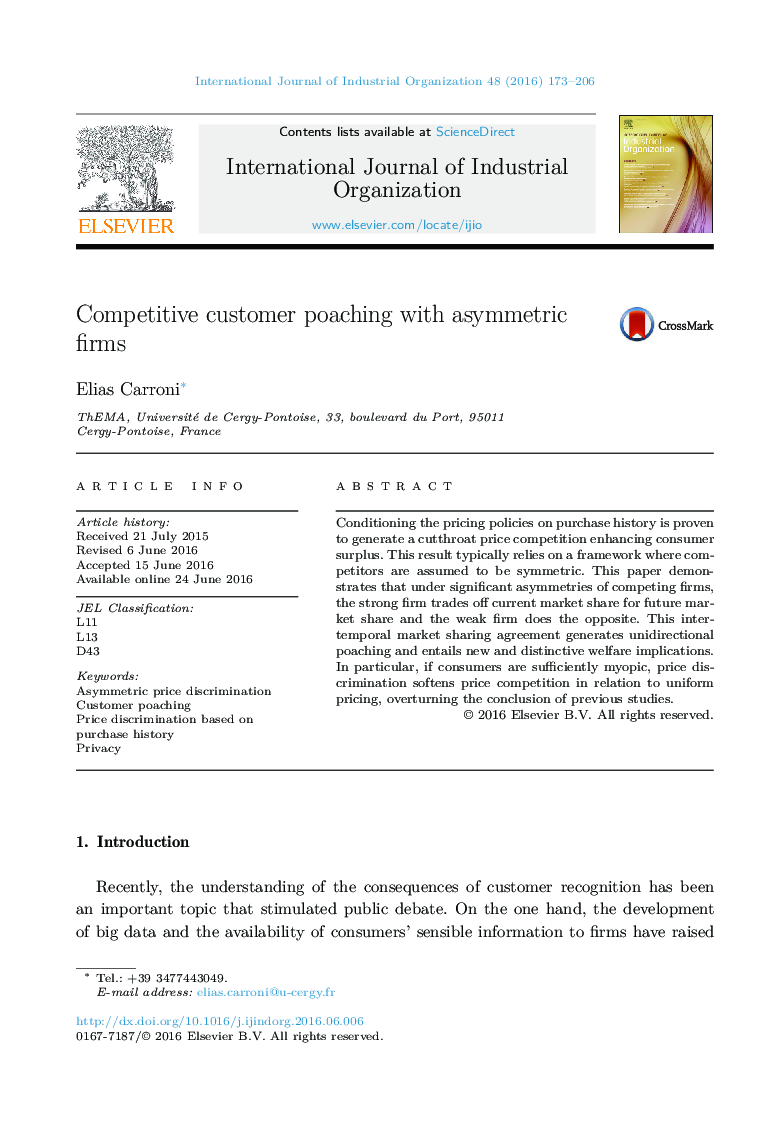| Article ID | Journal | Published Year | Pages | File Type |
|---|---|---|---|---|
| 5077810 | International Journal of Industrial Organization | 2016 | 34 Pages |
â¢We model BBPD when competing firms are asymmetric.â¢Asymmetry is crucial to determine the switching behavior of consumers.â¢When firms are sufficiently differentiated, the strong firm accommodates the rival and then attacks it on its turf.â¢If consumers are sufficiently myopic, BBPD boosts firms' profits and reduces consumer surplus.
Conditioning the pricing policies on purchase history is proven to generate a cutthroat price competition enhancing consumer surplus. This result typically relies on a framework where competitors are assumed to be symmetric. This paper demonstrates that under significant asymmetries of competing firms, the strong firm trades off current market share for future market share and the weak firm does the opposite. This inter-temporal market sharing agreement generates unidirectional poaching and entails new and distinctive welfare implications. In particular, if consumers are sufficiently myopic, price discrimination softens price competition in relation to uniform pricing, overturning the conclusion of previous studies.
